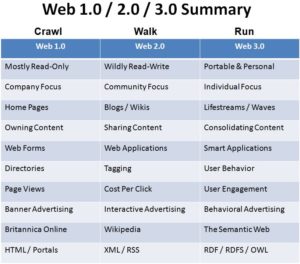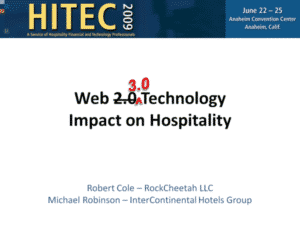Recent studies have shown that the research phase of the seven-step online travel process is becoming frustrating for consumers. Many travelers search a large number of sites or spend extended periods of time seeking information regarding airlines, hotels, car rentals, attractions and destinations that are best suited to their interests and needs. Google, with its massive search traffic and extensive advertising platform is well suited to help the travel industry improve travel research. In addition to many innovative tools that are currently offered, Google could help travel marketers by embracing travel industry standards and working to create persona-based traveler profiles that will better align the products of travel suppliers with customer needs.
The World’s Most Infamous Hotel Stay?
Keith Moon, the notorious drummer and perhaps equally feared hotel guest, celebrated his 21st birthday on August, 23 1967 following a concert in Flint, Michigan. The site was the Flint Holiday Inn, who even posted a warm welcome message to Keith on its iconic “great sign.” The 1960’s were largely about pushing boundaries and the loss of innocence. Keith pushed the boundaries; the hospitality industry discovered a new benchmark for room destruction and property damage. Both rock ‘n roll and the hotel industry were forever changed, and the legend of the most world’s most infamous hotel stay was born.
How Google Can Help Facilitate Travel Inspiration
Google, through its embracing the Open Source development community provides a wide variety of tools to developers, if creatively employed, can produce applications that help inspire travel. The Google Code site that supports developers offers numerous technologies that can help online travel sites create more compelling content to support eComerce for airlines, hotels, car rental, attractions and destinations. Google Wave provides a powerful platform for traditional travel agents to engage and collaborate with clients that will enhance their ability to inspire travel.
How Google Can Help Revolutionize Online Travel
A perfect storm of a lack of online travel innovation, traveler frustration, and an economic downturn that limits investment for potential new entrants provides Google with an opportunity to dramatically democratize online travel. With a large number of tools that already help facilitate online travel search, and social media, Google can further simplify access to better organized information to help a broader range of travel suppliers, destinations and sellers increase commerce and competition.
Origin of the Word “Travel” (This explains so much…)
It is no wonder that people tend to experience so much difficulty when traveling. The word travel is derived from the French word travail, but travail in turn originated from a Latin word that described a torture device. It seems that the originators of our language were trying to warn us about the challenges associated with travel. Creating a word synonymous with torture might be considered a hint. Perhaps this perspective will allow people to enjoy travel more by understanding that by nature, travel could always be a lot worse.
Why Google Will Radically Democratize Online Travel
The online travel industry may be well positioned for a radical step forward and Google may be the organization that can make it happen. A recent Forrester Research report has indicated that travelers are highly frustrated with the online travel experience. Online travel companies have been criticized for an apparent lack of organic innovation. Travel aligns nicely with Google’s mobile strategies and appears to be a perfect fit with the Google corporate philosophy.
US Hotel Industry Recession Enters New Rate Erosion Phase
The United States hotel industry is experiencing an unprecedented downturn. All hotel industry performance metrics, Average Daily Rate, Occupancy Percentage, and Revenue per Available Room have all trended downward over the past year. At the end of June, based on reporting from Smith Travel Research, national average room rates began to drop at a more rapid pace than occupancy percentages, marking the start of a new phase in the recession. The deeper discounting that has begun is on top of rate cuts that have already return average room rates to 2006 levels.
HITEC Presentation – Web 2.0 & 3.0 Impact on Hospitality Technology
The hospitality industry has been relatively slow to adopt Web 2.0 technology, so when asked to speak at the annual HFTP HITEC conference, RockCheetah’s Robert Cole and InterContinental’s MiCharl Robinson decided to look forward to Web 3.0 technologies as well. Breaking the presentation into two sections, the first have reviewed the progression from Web 1.0 through Web 2.0 and onto Web 3.0 including the key technologies and key success factors. The second portion highlighted best practices by firms like Morgans Hotel Group, Joie de Vivre and Imagini Youniverse that serve as leading examples of Web 2.0 supporting hotel customer engagement.
Web 2.0 & 3.0 Impact on Hospitality Technology | HFTP HITEC
The hospitality industry has been relatively slow to adopt Web 2.0 technology, so when asked to speak at the annual HFTP HITEC conference, RockCheetah’s Robert Cole and InterContinental’s MiCharl Robinson decided to look forward to Web 3.0 technologies as well. Breaking the presentation into two sections, the first have reviewed the progression from Web 1.0 through Web 2.0 and onto Web 3.0 including the key technologies and key success factors. The second portion highlighted best practices by firms like Morgans Hotel Group, Joie de Vivre and Imagini Youniverse that serve as leading examples of Web 2.0 supporting hotel customer engagement.

















